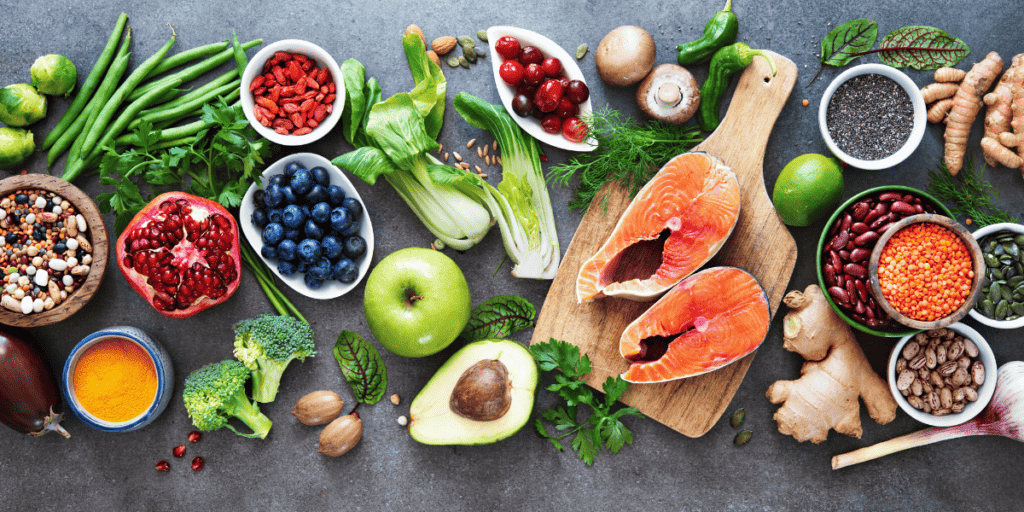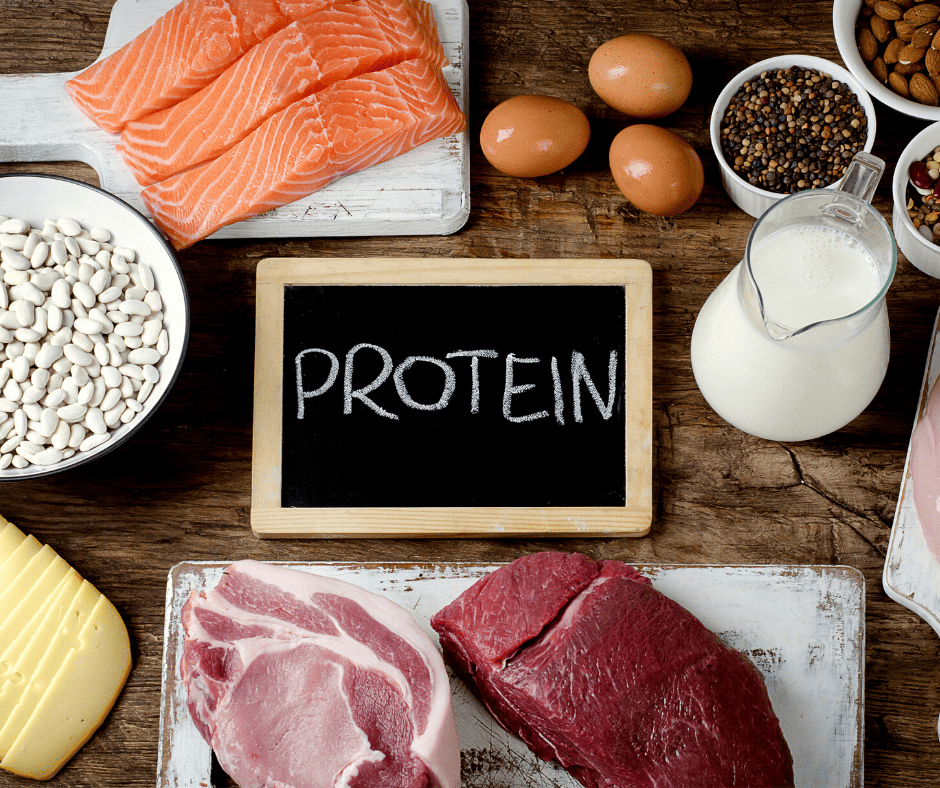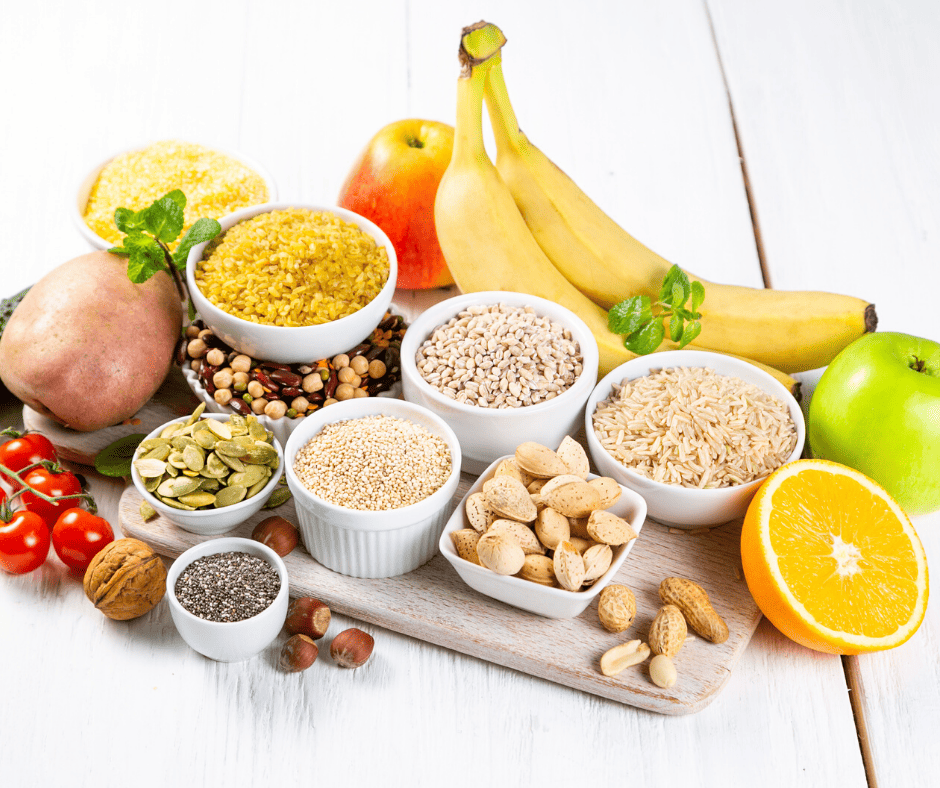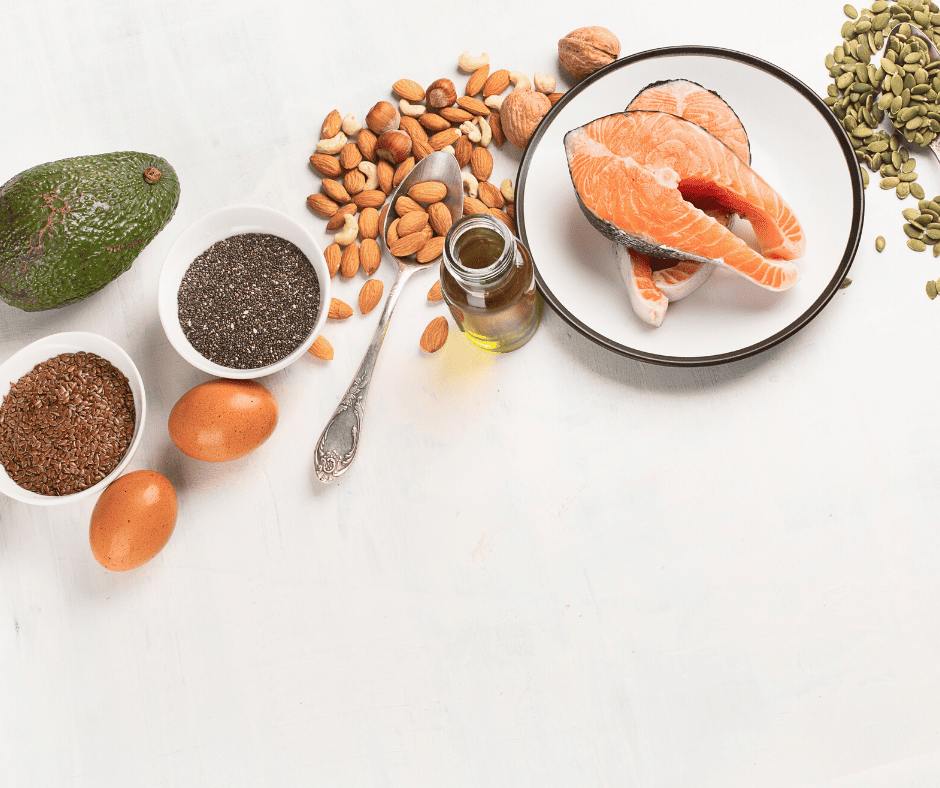
If the thought of counting macros has you a little weary, no worries. With a little practice, it will become second nature.
New here? Thanks for stopping by or welcome back. After you read this blog, be sure to check out some of my other articles for women over 50 who want to lose body fat, build muscle and create fit and strong bodies.
- 10 Fitness Truths You Need to Know to Get Amazing Results
- Want Strong Abs? Do These Top Exercises Every Week
- Top 10 Ways Women Can Boost Metabolism After 50
- Strength Training is the Most Powerful Solution to Reverse Aging
- 5 Surprisingly Easy Ways to Keep Your Body Strong
- Top 10 Reasons to start tracking the food you eat
What is a macro?
Macro is short for macronutrients which consist of Protein, carbohydrates and fats. Each macro has multiple jobs and we need all 3 of them.
Protein


Carbohydrates
Oh, the dreaded carbs! Carbs have gotten a bad wrap in my opinion. Maybe, because we tend to eat way too many carbs. When you start counting macros, you may be surprised. But completely ditching them isn’t the answer either. We need to find a happy medium. We also need to eat more of the complex carbs and limit the simple carbs, like sugary treats.


Fats
Do fats make you fat? Should you avoid them? Does it matter what kind of fat you eat?
Fats in and of themselves don’t make you fat. Too many calories and not enough exercise does that. Do you remember the fat-free era? Well, I was all over that. If it said fat-free , it went in my grocery cart. So, we’ve learned a lot over the years.


Do I need to start counting macros? I'm already tracking my calories.
If you’re counting your calories, you are doing great. Knowing how many calories you’re eating is where most of us start. Calories count the quantity of food you eat and we all know that eating too many calories can cause us to gain weight. Macros count the quality of the food you eat. To illustrate, an average plain donut has approximately 260 calories. So does a breakfast of 2 eggs, a slice of whole grain bread with peanut butter.


Yes, we all know that the breakfast of eggs has more nutrition than the donut. What if you want to have that donut? How do you know how to adjust the rest of your day to account for it? When you’re tracking, you’ll know exactly what you need to do.
There are no bad foods; just foods we eat in moderation.
How does counting macros help with weight loss?
The simple answer – Yes!
Counting macros helps with portion control
Even healthy foods have calories. If you feel like you’re eating healthy and the scale still isn’t budging, it could be due to your portion sizes.
If you’ve never measured or weighed the food you’re eating, it is likely that your one serving is closer to 1 1/2 or 2 servings.
When you are counting macros accurately, you’ll want to know your portion size.
Counting macros helps you make more informed food choices
Sometimes you will want to eat that not-so-healthy food. Go for it. Track it. Eat it and enjoy.
Other times, you will want to make the healthiest choice so that you can reach your weight loss goal faster. By counting macros, you can easily see the difference between foods.
I have found that when I track the food BEFORE I eat it, I may change my mind and opt for a healthier option.
Either way, you’re making an informed choice.
Counting macros guides you to eat more nutritious foods
Counting macros is the most effective way to lose weight. When you can see how a food impacts your macro plan, you will end up eating more nutritious foods.
You always have a choice. Once you have set a plan in motion to eat 30% of your calories in carbs and you see the pasta dinner is going to move the needle closer to 40%, you’re be more likely to skip the pasta tonight.
Counting macros helps keep you accountable to yourself
There’s something about writing it all down – whether with pen and paper or on your phone in an app that helps keep us accountable to the goal we set.
Are you going to let yourself down or will you save the cookie for tomorrow when you can fit it into your macros?
It’s always a choice.
Hit a plateau in your weight loss? Counting macros can help.
If you’ve hit a plateau, now is the time to take a good look at your macros. You may be eating more calories, more fat, more carbs than you think.
Or maybe, your body just needs a change. Sometimes the smallest change can make all the difference.
How much of eat macro should you eat?
There are guidelines to follow regarding each macro. However, there is no one-size fits all.
Below, are the general guidelines.
- Protein - 10 - 35%
- Carbohydrates - 45 - 65%
- Fat - 20 - 35%
Now that I’ve given you the general guidelines. I want to offer a couple recommendations. As we get older, we need more protein, so I like to keep mine on the upper end of the range and up to 40% or more.
When your goal is weight loss, women tend to do better with carbs on the lower end of the spectrum. You may want to consider 30 – 35%. I keep mine around 40%.
I follow what is commonly referred to as the 40-40-20 macro plan. This is a good place for anyone to start and then adjust from there.
If you’re a woman approaching or over 50 and you’d like to be part of a community of supportive women all on a journey to lose weight, live a healthier lifestyle and challenge the aging process, I invite you to join our Facebook community.
Pin it now. Read later.

